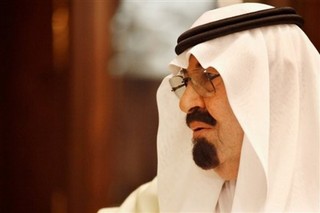On January 2, 1977, the Shah of Iran made a painful admission about his country’s economy. “We’re broke,” he confided bluntly to his closest aide, court minister Asadollah Alam, in a private meeting. Alam predicted still more dangers to come: “We have squandered every cent we had only to find ourselves checkmated by a single move from Saudi Arabia,” he later wrote in a letter to the shah. “[W]e are now in dire financial peril and must tighten our belts if we are to survive.”
The two men were reacting to recent turmoil in the oil markets. A few weeks prior, at an OPEC meeting in Doha, the Saudis had announced they would resist an Iran-led majority vote to increase petroleum prices by 15 percent. (The shah needed the boost to pay for billions in new spending commitments.) King Khalid bin Abdulaziz Al Saud argued that a price hike wasn’t justified when Western economies were still mired in a recession — but he was also eager to place economic constraints on Iran at a time when the shah was ordering nuclear power plants and projecting influence throughout the Middle East. So the Saudis “flooded the markets,” ramping up oil production from 8 million to 11.8 million barrels per day and slashing crude prices. Unable to compete, Iran was quickly driven from the market: The country’s oil production plunged 38 percent in a month. Billions of dollars in anticipated oil revenues vanished, and Iran was forced to abandon its five-year budget estimates.
Read Full Article »



